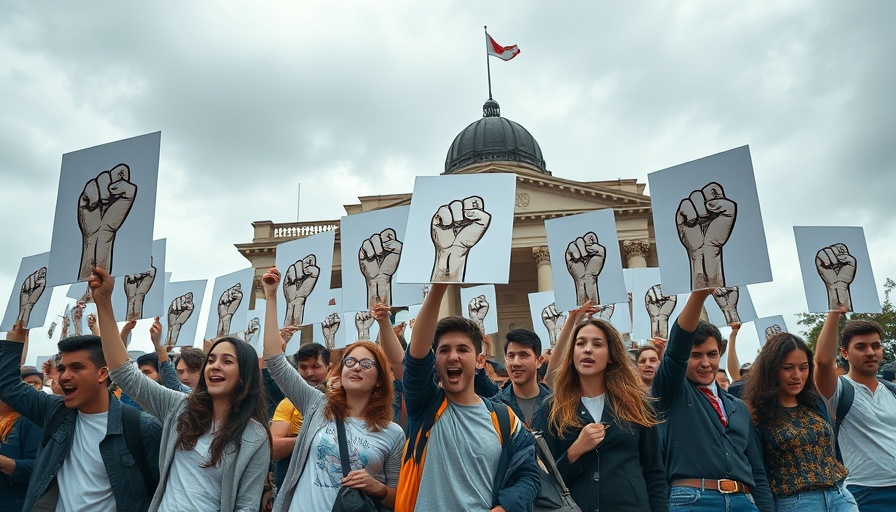
Understanding the Impact of Visa Revocations on Students
Recently, the lives of some international students and graduates at San Francisco State University have been turned upside down as their F-1 visas were revoked amid a broader crackdown on visa holders by governmental authorities. The recent actions taken by the Trump administration have raised profound concerns about the intersection of politics and education, particularly how governmental policies can affect the freedom and safety of students pursuing their studies in the United States.
Politically Charged Environment Creating Anxiety
The alarming increase in visa cancellations has not been limited to one university. Educators and students across San Francisco are bracing for what may come next. A prominent professor noted that a culture of fear is emerging among international students due to the unpredictable nature of governmental actions. “Our international students are panicking,” she shared, exemplifying the growing anxiety faced by many students as news of visa revocations continues to circulate. This environment of uncertainty deeply affects their ability to focus on their studies and fully absorb their educational experience.
The Broader Implications of Withdrawn Support
Many university administrators find themselves in a precarious position. On the one hand, they want to protect their students; on the other, they must navigate the potential fallout from governmental scrutiny. How can universities communicate their support for the students while simultaneously evading a backlash that could further endanger those who are already vulnerable? As one faculty member pointedly remarked, “The federal government doesn’t care about who is doing the speaking out, they care that there is speaking out.” This adds layers of complexity to how educational institutions manage their responsibilities amid political pressures.
Student Activism: A Request for Institutional Support
As student activists rally for their voices to be heard, some are pushing for more active responses from their universities. Specifically, there is a call for academic institutions to explicitly stand against the intimidation tactics employed by the administration, particularly against pro-Palestinian expressions. It highlights an environment where not only are politically active students under threat but where the act of supporting a cause could provoke unwanted attention from authorities. Max Flynt, a San Francisco State student involved with the General Union of Palestine Students, highlighted, “We understand that the Trump administration is trying to intimidate pro-Palestine protestors, but they’re using sweeping measures against students.” These sentiments echo widespread calls for solidarity among students and faculty alike.
The Role of Community in Support Systems
As visa revocations continue to emerge, a network of support programs is gradually being created within academic communities aimed at providing legal assistance and resources for affected individuals. San Francisco State University has proactively reached out to its students, offering free legal resources to help navigate the complexities surrounding their visa statuses. However, the challenges are ongoing and extend beyond the immediate legalities.
Looking to the Future: Navigating Fear and Advocacy
Facing visa cancellations and a charged political atmosphere prompts a call for action, not just for students affected directly but also at a systemic level. The repercussions of governmental policies extend beyond individual cases; they pose significant questions about academic freedom, expression, and the rights of international students in America. As we look ahead, it is essential for student advocacy groups and educational institutions to continue to foster an environment where critical conversations about justice and equity remain vibrant and active—even when faced with challenges from governmental bodies.
Act Now: Solidarity and Support for Affected Students
Parents, educators, and community members are urged to lend their voices to the discourse surrounding the treatment of international students. Advocate for assistance programs that support students impacted by such policies and encourage universities to take an active stand in protecting academic freedom. The future of educational environments nationally will hinge on the collective acknowledgment of these challenges and the resolve to create safer spaces for all students.
 Add Row
Add Row  Add
Add 




Write A Comment